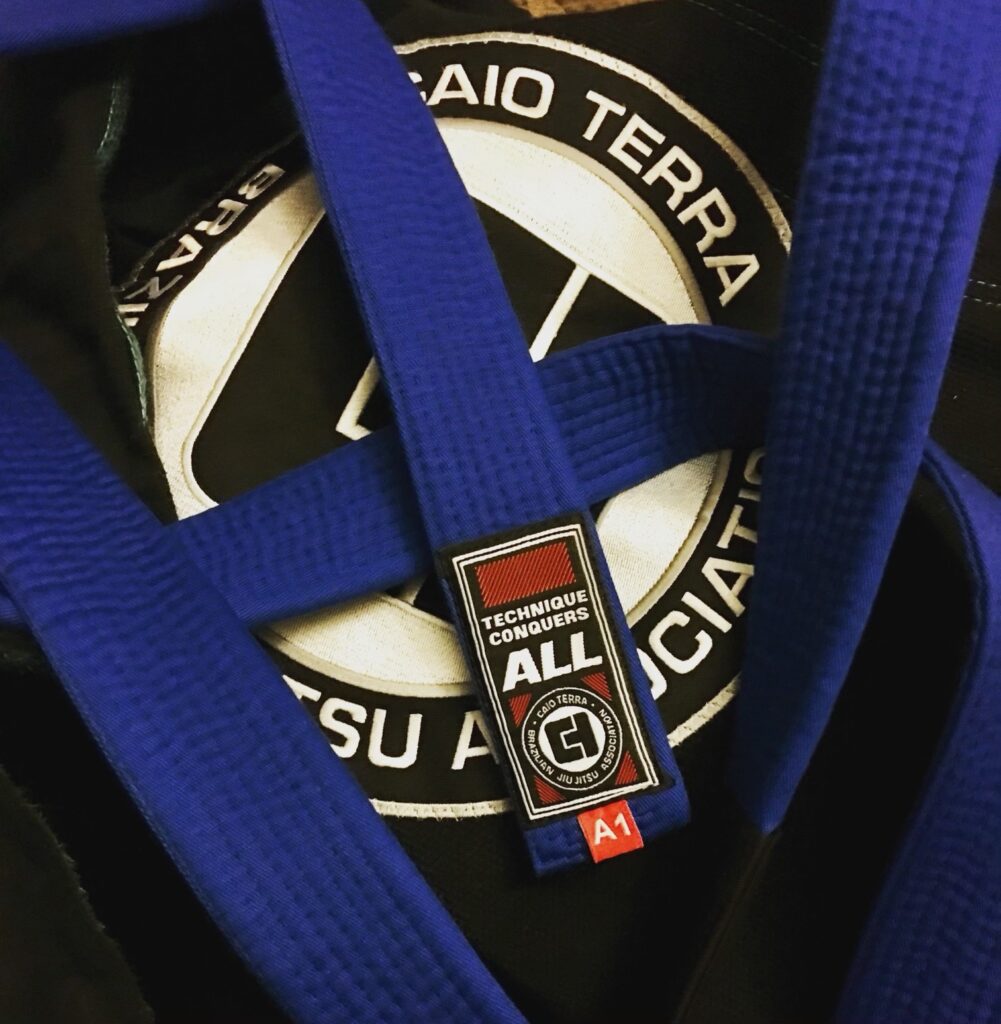Blue Belt Blues: The Symptoms and How To Treat Them?
That day finally comes when you retire your white belt for a shiny new, stripe-free blue belt. Congratulations fill the air. Hugs and smiles are plentiful. And that first roll, that first roll feels like magic. Somehow, that blue piece of fabric around your waist instills you with extra confidence and your movement becomes more fluid. It feels great!
Until it doesn’t.
It may take weeks, months, or years, but eventually you will come down with a case of the blue belt blues.
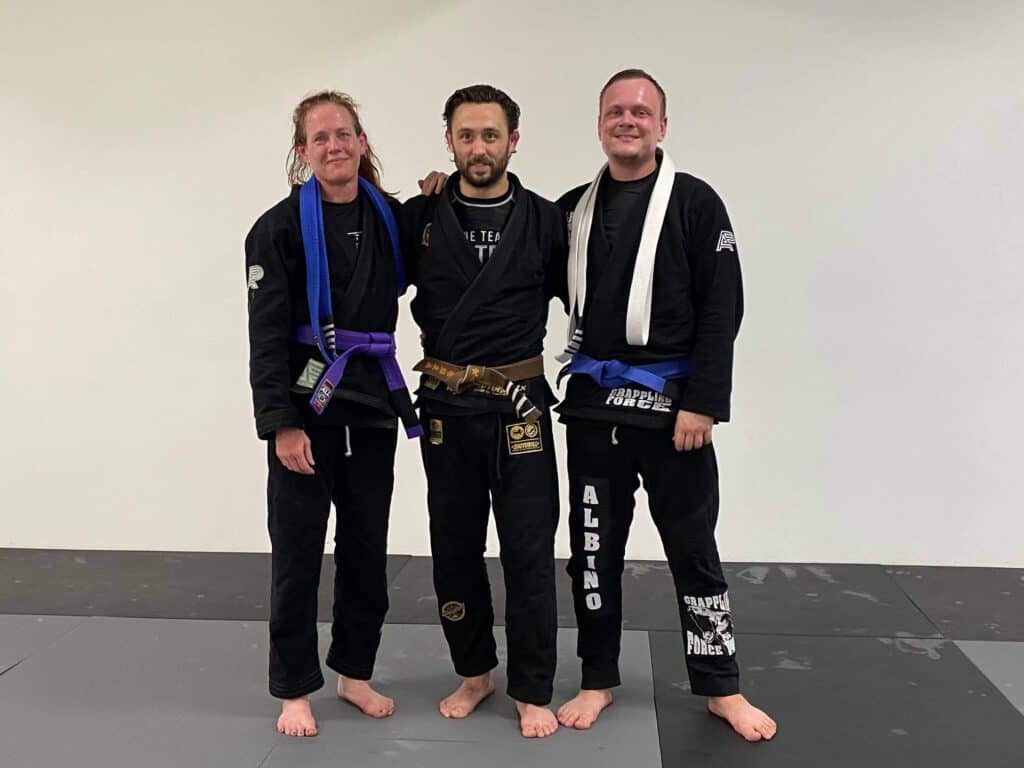
The Symptoms
Whether the blues come on suddenly or sneak up on you, the symptoms are the same. The telltale signs are fear and self doubt.
“What if I’m not good enough?”
“I don’t deserve this blue belt.”
“How can I make so many mistakes in one roll?”
You slap hands at the start of a roll and the first thing you think is, “please don’t let me get tapped out by this white belt.” And when it happens, because eventually it will, your ego deflates. You smile and tell them “great job,” but what you feel is failure.
Rolling becomes a chore, a letdown. You show up out of habit and the desire to get better, but that spark you felt at the beginning of the relationship is gone.
How Did You Get Here?
The thing about being a blue belt is that it is an in between stage. It is experiencing your teens all over again. You no longer “know nothing” about Jiu Jitsu. When you were a white belt, there were no expectations. You didn’t really have to know anything. It wasn’t expected of you. It is that age old adage, “Ignorance is bliss.”
You aren’t a white belt who knows nothing, but you also aren’t a purple belt who is on their journey toward brown and beyond.
This adolescent stage of Jiu Jitsu is filled with uncertainty.
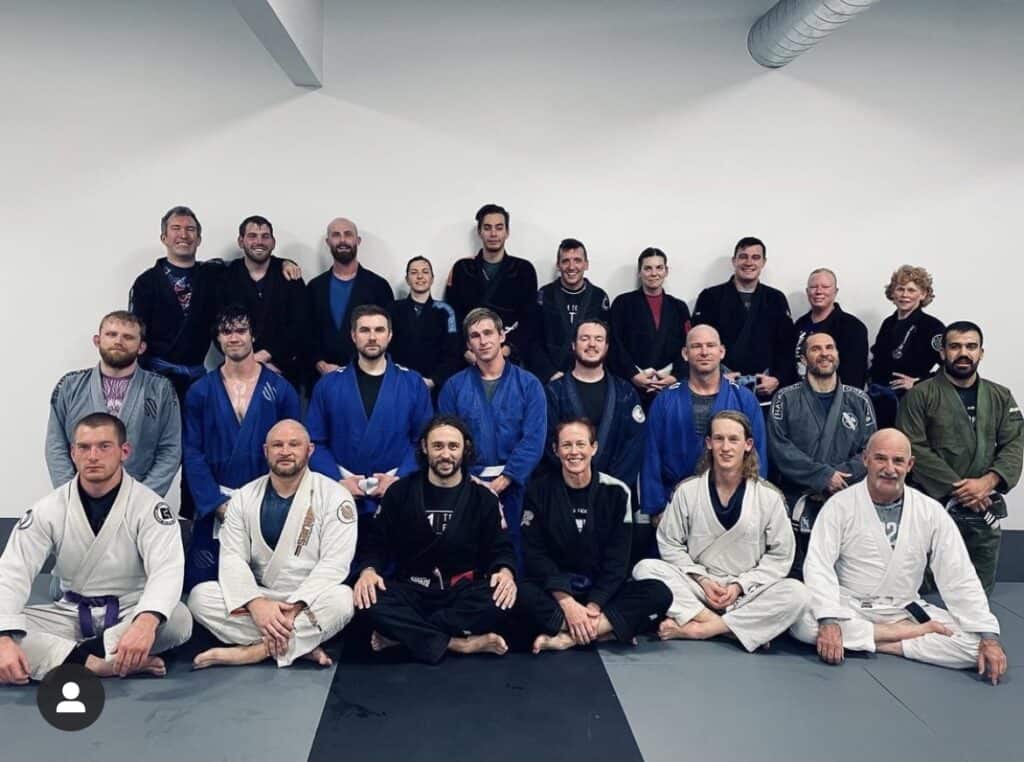
The Treatment
The prognosis may look grim, especially when you are in the thick of it, but there are clear steps toward recovery. The treatment begins with controlling that internal chatter.
Control Your Thinking
If your thoughts veer toward thinking you don’t deserve the belt around your waist, put your faith in your instructor. Respect for you instructor means realizing that they know more than you. Your instructor tied that belt around your waist for a reason. To believe otherwise is a form of disrespect.
When you are making mistake after mistake, remind yourself that a year ago you wouldn’t have even noticed. Then, slow down. Focus on just one mistake you are making and ask an upper belt how to correct it. Nobody learns Jiu Jitsu in one roll; don’t expect to be the exception. By focusing on one technique or trouble spot at a time, you are more likely to see an improvement in your game.
When you get tapped out by a white belt, remind yourself that this is their journey too. When you say, “Great job,” mean it. Be genuinely happy for your teammates and it will be harder to feel sorry for yourself.
No Comparison
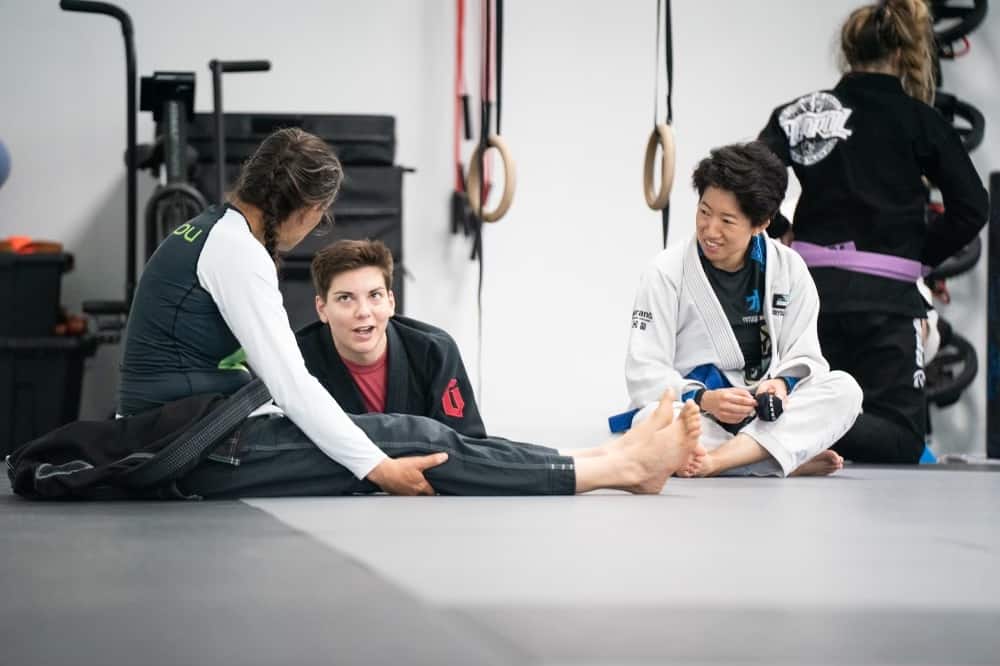
Roll with everyone, but compare yourself to no one. Nothing good comes from playing the comparison game. Everyone has their own strengths and weaknesses. Each person is working on improving their Jiu Jitsu at their own pace.
When you let go of comparing your skills to others, you are better able to focus on yourself.
We all have good days and bad days. Taps and triumphs will come and go. A white belt who just had a technique “click” for them may tap you out one day, only to struggle the next. It isn’t about who is better, nor is it about winning. It is about personal growth. Compare yourself only to your former self to see how far you have come.
Recognize Challenges as Opportunities
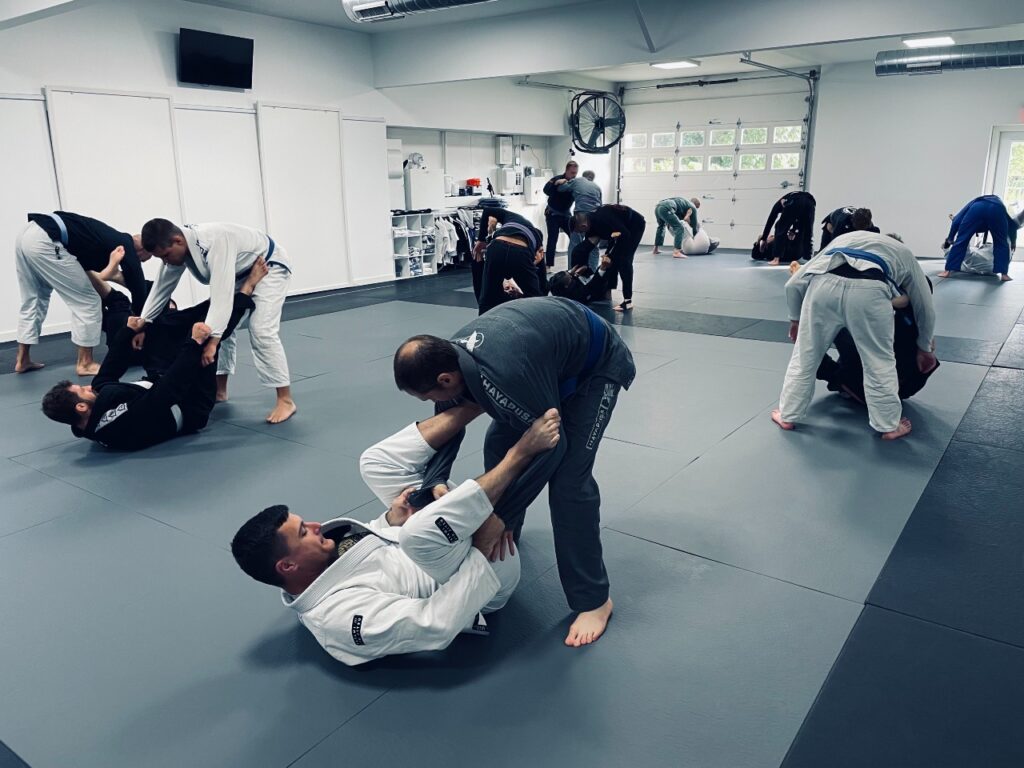
Reframe your thinking. If everything is easy, you aren’t learning.
In those moments when you are feeling challenged, remember that you are engaging in an opportunity to improve your game. One of the reasons you feel more challenged as a blue belt is that you are seeing the technique more clearly.
When a white belt first looks at a triangle, for example, they tend to notice the legs around an opponent’s neck. Which leg is on top and how they are folded is the primary focus.
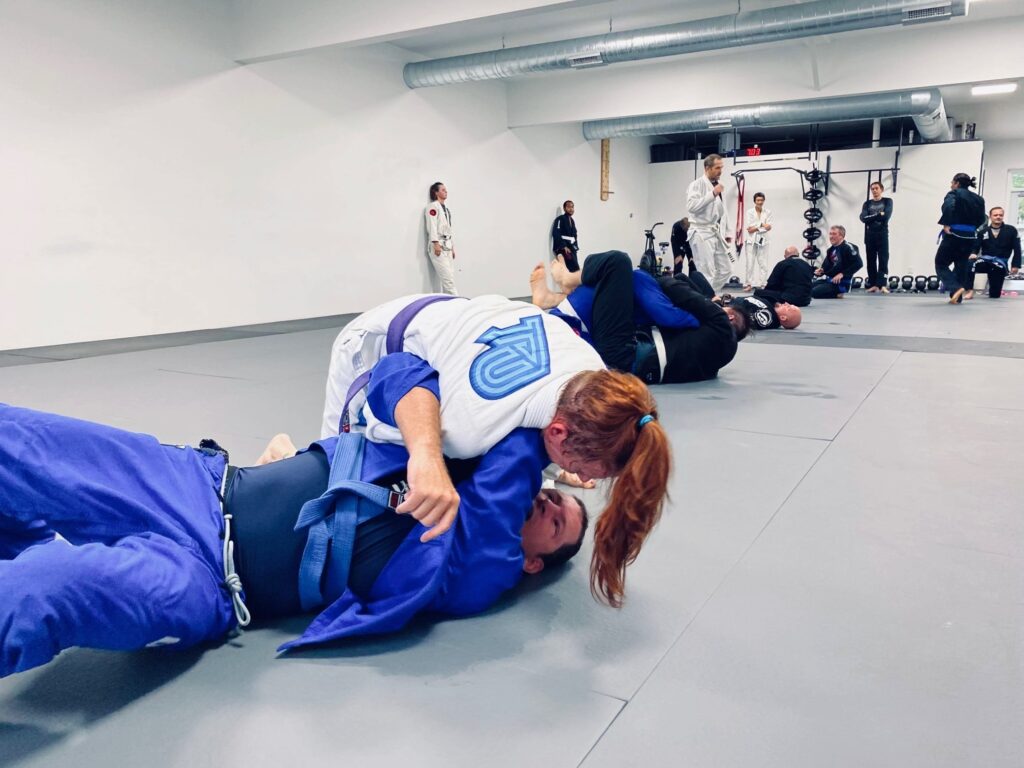
When a blue belt watches that same triangle, it is an entire world of possibilities. The blue belt notices the setup, angle, and sequence of events. The focus is no longer just on the legs, but on what the hands are doing, the height of the hips, and the space that exists between the opponents.
When you are seeing the challenge in Jiu Jitsu, you are opening yourself up to grow.
Check Your Ego
Be humble on the mats, and you will be happier.
That mats should not be a place to prove yourself. They are a place to improve yourself! (I may have stolen that from my instructor.) If you can set aside your ego, you will open yourself up to learning.
Checking your ego also makes you a better partner. When you pay less attention to yourself, you have more time for others.
When you are rolling, focus on your own goals, but also pay attention to your partner. Rolls should be mutually beneficial. After each roll, as you are thanking your partner, stop to think. What did you learn from that roll? How about your partner? Doing so will ensure that you are not just in it for yourself and will remind you to share the mat. There isn’t room for your ego!
Have Fun
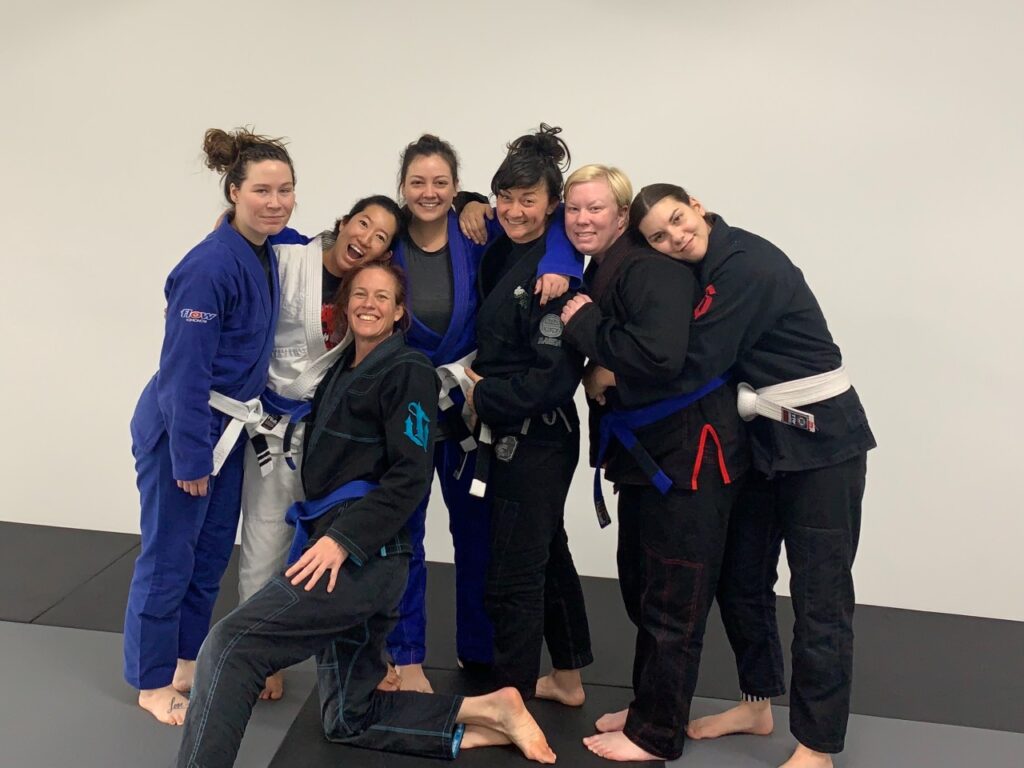
Remember why you began your journey.
Jiu-Jitsu is a game. That can be easy to forget during times of struggle or moments of passion. So, remind yourself.
You are likely to spend some time at the blue belt level, so it is important to enjoy it.
Loosen up. Help your teammates. Play the game to play the game, not to win or lose.
Reframing Your Experience
So, you are an adolescent. That awkward in-between stage. What else can this mean?
The blue belt experience should be a time of learning and growing. You will have some successes and make many mistakes. Some you will notice, and for others it will take a more seasoned eye.
You no longer “know nothing.” You know enough to help others who have just begun their journey. And equally as important, you have many more practitioners who know more than you. Rely on them. Ask them questions. Reminisce about their awkward, adolescent stage.
Remember that when you hang up one belt for another that it is both an ending and a beginning. We all have so much more to learn. Be thankful that you are on this journey.
